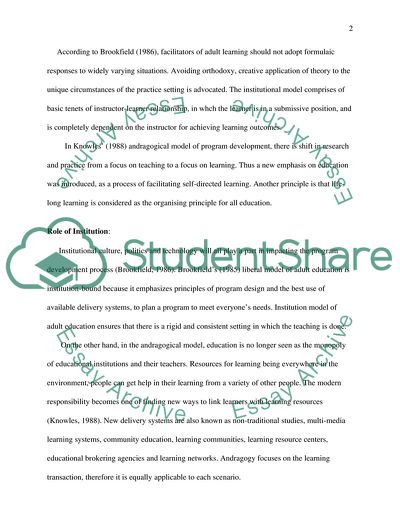Cite this document
(Program Development Models of Adult Learning Case Study Example | Topics and Well Written Essays - 1750 words, n.d.)
Program Development Models of Adult Learning Case Study Example | Topics and Well Written Essays - 1750 words. https://studentshare.org/education/1541936-critique-program-development-models-adult-education
Program Development Models of Adult Learning Case Study Example | Topics and Well Written Essays - 1750 words. https://studentshare.org/education/1541936-critique-program-development-models-adult-education
(Program Development Models of Adult Learning Case Study Example | Topics and Well Written Essays - 1750 Words)
Program Development Models of Adult Learning Case Study Example | Topics and Well Written Essays - 1750 Words. https://studentshare.org/education/1541936-critique-program-development-models-adult-education.
Program Development Models of Adult Learning Case Study Example | Topics and Well Written Essays - 1750 Words. https://studentshare.org/education/1541936-critique-program-development-models-adult-education.
“Program Development Models of Adult Learning Case Study Example | Topics and Well Written Essays - 1750 Words”. https://studentshare.org/education/1541936-critique-program-development-models-adult-education.


